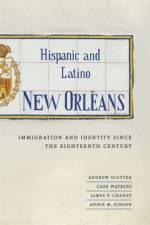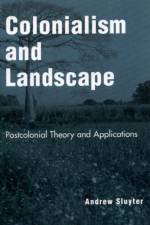- Immigration and Identity since the Eighteenth Century
av Andrew Sluyter, Case Watkins, James P. Chaney & m.fl.
547
Often overlooked in historic studies of New Orleans, the city's Hispanic and Latino populations have contributed significantly to its development. Hispanic and Latino New Orleans offers the first scholarly study of these communities in the Crescent City. This trailblazing volume not only explores the evolving role of Hispanics and Latinos in shaping the city's unique cultural identity but also reveals how their history informs the ongoing national debate about immigration.As early as the eighteenth century, the Spanish government used incentives of land and money to encourage Spaniards from other regions of the empire-particularly the Canary Islands-to settle in and around New Orleans. Though immigration from Spain declined markedly in the wake of the Louisiana Purchase, the city quickly became the gateway between the United States and the emerging independent republics of Latin America. The burgeoning trade in coffee, sugar, and bananas attracted Cuban and Honduran immigrants to New Orleans, while smaller communities of Hispanics and Latinos from countries such as Mexico, Puerto Rico, and Brazil also made their marks on the landscapes and neighborhoods of the city, particularly in the aftermath of Hurricane Katrina.Combining accessible historical narrative, interviews, and maps that illustrate changing residential geographies, Hispanic and Latino New Orleans is a landmark study of the political, economic, and cultural networks that produced these diverse communities in one of the country's most distinctive cities.



